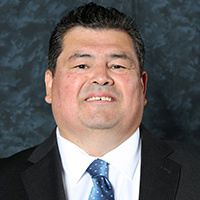Houston Criminal Lawyer, Texas
Sponsored Law Firm
-
 x
x

Click For More Info:
-
Law Office of Baldo Garza PLLC
11200 Westheimer Rd. Suite 710 Houston, TX 77042» view mapCriminal Defense Law Working With You Every Step
Baldo Garza PLLC has been working together for 15 years and has a proven track record of success. We use that experience to help you down a path to the results you need.
800-691-8350
Colleen McClure
✓ VERIFIEDI am a Christian Attorney diligently working to take care of my client's cases that have been entrusted to me. At my office the client always comes ... (more)
Mervyn Milton Mosbacker
✓ VERIFIEDMy mission is to vigorously fight for my client and to make sure my client is protected from unfair and abusive government or law enforcement actions.... (more)
Charles August Banker
✓ VERIFIEDMr. Banker is a board certified specialist in criminal law with 30 years experience. He is dedicated to the best interest and well-being of those he r... (more)
Mark W. Bennett
Since graduating from law school in 1995, he has dedicated his career to criminal defense, never stepping foot in the realm of prosecution. Mark posse... (more)
Marshall Douglas Murphy
Doug Murphy stands as a prominent figure in the legal realm of Houston, Texas, with a focus on Criminal Law and DWI Defense. His career, which began i... (more)
Robert R. Jones
✓ VERIFIEDRobert R. Jones, III earned his J.D. from South Texas College of Law Houston in 2011. He graduated in 1989 with a bachelor’s degree in English and c... (more)
Tanika J. Solomon
✓ VERIFIEDAttorney Solomon is dedicated to helping families overcome the difficulties that arise from criminal charges, personal injury, and preparing for the d... (more)
Ross Booth Reifel
✓ VERIFIEDAttorney Reifel is a practicing lawyer in the state of Texas.
Tyesha Elam
✓ VERIFIEDTyesha Elam is a practicing lawyer in the state of Texas handling family law matters.
Roger L. Merrill
✓ VERIFIEDRoger Merrill is a practicing attorney in the state of Texas. He graduated from the University of Houston with his J.D. in 1991. He currently works at... (more)
 Baldomero Garza III Houston, TX
Baldomero Garza III Houston, TX Practice AreasExpertise
Practice AreasExpertise











